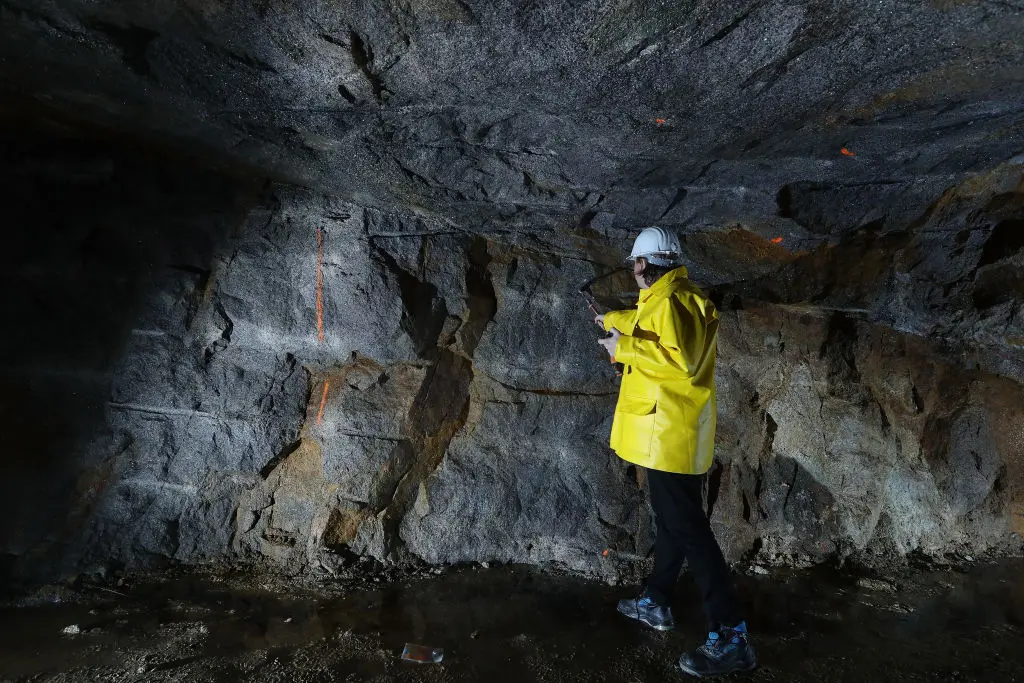While many dream of high-profile professions like doctors, lawyers, or CEOs, the backbone of a healthy economy lies in its basic industries. These essential sectors provide the raw materials and resources that fuel countless other industries and keep society running smoothly. But what about the individuals who make it all happen?
The good news is that basic industries offer a wealth of rewarding career paths, many with attractive salaries. This article explores ten of the highest-paying jobs in basic industries for 2024, along with the qualifications and experience needed to thrive in these roles.
1. Petroleum Engineer: Leading the Charge in Oil & Gas Exploration (Avg. Salary: $127,318)
Petroleum engineers are the masterminds behind the exploration, extraction, and management of oil and natural gas resources. They develop innovative techniques to efficiently and safely recover these valuable resources from the Earth’s depths.
A bachelor’s degree in petroleum engineering or a related field is typically required, with some specialized positions demanding a master’s or doctoral degree. Petroleum engineers can find employment with oil and gas exploration companies, drilling companies, consulting firms, research institutions, and government agencies.
2. Offshore Drilling Rig Manager: Commanding the Helm at Sea (Avg. Salary: $83,417)
Offshore drilling rig managers, also known as offshore rig managers, hold immense responsibility. They oversee the complex operations of offshore drilling rigs, massive structures used to drill for oil and gas in deep waters, often far from the coastline.
Ensuring safe, efficient, and productive drilling requires exceptional leadership skills, technical expertise, and a deep understanding of drilling processes, safety protocols, and regulations. Extensive experience working in drilling operations is crucial, often starting in lower-level roles and progressing upwards.
3. Reservoir Engineer: Maximizing Resource Recovery (Avg. Salary: $167,679)
Delving into the complexities of subsurface reservoirs lies the realm of the reservoir engineer. These specialized professionals focus on understanding and managing the behavior of these reservoirs containing oil, gas, or water. Their primary task is to optimize the extraction of hydrocarbons while maximizing recovery rates and economic efficiency.
Reservoir engineers play a critical role in assessing reservoir potential, designing extraction strategies, and ensuring the long-term sustainability of production. A bachelor’s degree in petroleum engineering, chemical engineering, or a related field is usually required, with some positions demanding a master’s or doctoral degree for advanced research or specialized roles.
4. Drilling Engineer: Precision and Efficiency in Drilling Operations (Avg. Salary: $104,950)
Drilling engineers are the strategists behind safe and efficient drilling for oil and gas extraction. They plan, design, and supervise drilling operations, from selecting well locations to designing drilling techniques and equipment. Their expertise significantly impacts the success of drilling projects by ensuring wells are drilled efficiently, safely, and by industry standards.
To become a drilling engineer, a combination of education, experience, technical skills, and a commitment to safety is essential. Typically, a bachelor’s degree is required, followed by gaining in-depth knowledge of drilling operations, equipment, safety protocols, and regulations.

Certifications relevant to good control and specific drilling tools and techniques can further enhance qualifications. While not always mandatory, a master’s degree in petroleum engineering, drilling engineering, or a related field can provide advanced knowledge and open doors to higher-level positions.
5. Production Engineer: Optimizing the Flow of Valuable Resources (Avg. Salary: $95,972)
Once wells are drilled, production engineers step in to optimize the production of hydrocarbons. Their focus lies on ensuring efficient, safe, and cost-effective well operations to maximize the recovery of valuable resources from reservoirs. Production engineers work for oil and gas exploration companies, operating companies, service companies, and consulting firms.
A bachelor’s degree in petroleum engineering, chemical engineering, or a related field is typically needed, with some roles requiring a master’s degree or specialized training for more advanced positions or specific industries.
6. Petrophysicist: Unlocking Reservoir Secrets (Avg. Salary: $116,844)
Petrophysicists are the detectives of the oil and gas industry. Applying their expertise in analyzing and interpreting the physical and chemical properties of rocks, fluids, and reservoirs, they provide crucial insights for optimizing hydrocarbon production.
| Important Links |
| 1. Top 10 High-Paying Jobs in Capital Goods |
| 2. Top 14 Well-Paying Jobs in Public Utilities 2024 |
| 3. Highest-Paying Finance Jobs in 2024 |
| 4. High-Paying Jobs in the Consumer Services Sector |
Their role is vital in evaluating reservoir characteristics and guiding drilling, production, and reservoir management decisions. A relevant bachelor’s degree, followed by a master’s or doctoral degree for advanced roles, is a typical path. Familiarity with well-logging tools and software used for data analysis is necessary, and relevant certifications in specific well-logging tools and techniques can be beneficial.

